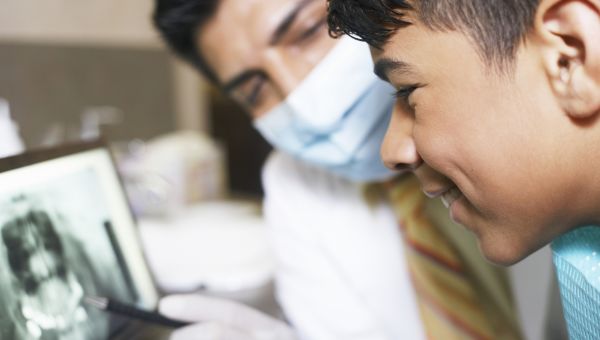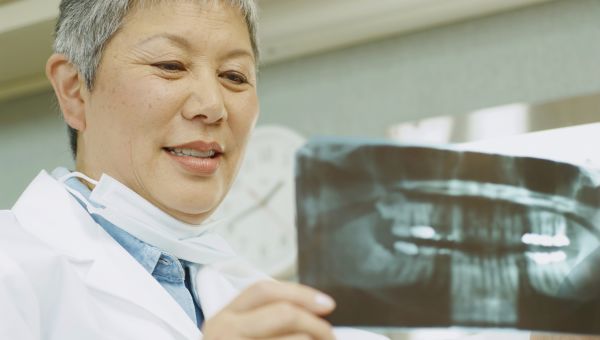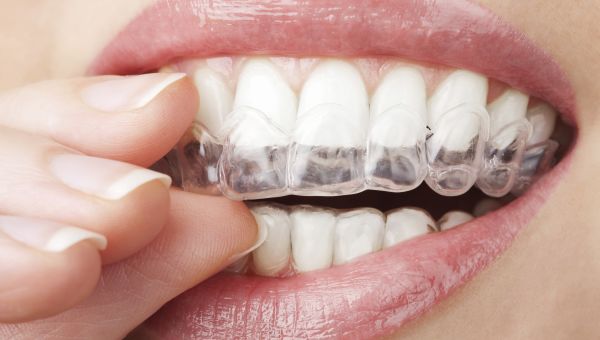8 reasons you shouldn’t avoid the dentist
Modern dental care is all about prevention and comfort.
Updated on November 26, 2024

There are many reasons a person might not visit the dentist. Maybe they think that brushing their teeth is enough to maintain oral health. Maybe they have bad memories of a previous trip. Maybe they don’t have dental coverage. Maybe they just forgot.
But if you are able, it’s important to check in regularly with your friendly neighborhood dentist. Not only do dentists help keep your teeth clean, they can spot oral health problems early, helping you save time and money in the long run. Ideally, both adults and children should visit a dentist every six months, or at least once per year. Someone with oral health issues may have to go more often.
With that in mind, here are eight good reasons to see an oral health care professional.

Avoid Major Dental Work
With regular checkups, your dentist can spot early signs of decay at a stage when the damage can usually be reversed. This can help you avoid more complex dental work, including the drill.
“When it comes to cavities, it’s not an all or nothing situation,” says Fotinos Panagakos, DMD, a licensed dentist and dean of the Pacific Northwest University’s School of Dental Medicine. “The tooth enamel gets broken down over time, but your dentist can detect it early and take steps to reverse that process with various fluoride products, so your tooth will go back to normal and you’ll avoid a cavity.” You could end up saving lots of time and money.

Protect Your Heart
Research increasingly shows a link between gum disease and serious health concerns like heart disease and stroke, says Jonathan B. Levine, DMD, an aesthetic dentist in New York City. Gum disease acts like a messenger that arrives ahead of other types of inflammation in the body. "What we've come to realize is that what’s healthy for your mouth is also healthy for your body,” says Dr. Levine.
With regular cleaning and checkups, dentists can identify and treat gum disease in its early stages, or even prevent it from developing in the first place.

Keep Sugars in Check
The relationship between diabetes and periodontal (gum) disease works both ways, says Dr. Panagakos. “If someone has diabetes, periodontal disease can add to the challenge of controlling blood glucose levels, and if you have poor glucose control, it can predispose you to developing gum disease,” he explains.
Bottom line: If you’re one of the 35 million adults or children in the U.S. with type 2 diabetes, or if you’re at high risk for diabetes, make regular dental visits a top priority.

Beat Cancer
Many people know about screenings like mammograms, colonoscopies, and Pap smears to detect cancer, but many are surprised to learn that dentists provide an important cancer screening, too. When a dentist looks all around your mouth and asks you to stick out your tongue, they are looking for signs of oral cancer, such as a lump or a white or red patch of skin. This exam is especially important for people who use tobacco products or drink alcohol because they're at higher risk of developing oral cancers. Regular exams can help catch these cancers early and give you the best chance of a successful treatment.

Feel Calm and in Control
If a bad experience years ago is keeping you away, you’ll be happy to hear that many dentists are now more focused on patient comfort. Dentists can prescribe a mild sedative that makes your appointment seem quick and easy, and new laser dentistry is virtually pain-free.
“The biggest single change in dentistry has been that we give patients that control,” says Mark S. Wolff, DDS, Morton Amsterdam Dean at the University of Pennsylvania School of Dental Medicine. “A good dentist will always stop immediately if a patient feels pain or they’re uncomfortable in any way. And if your dentist isn’t doing that, it’s time to find a new one.”

Treat Dry Mouth
Regular checkups are especially important if you’re taking a medication that causes dry mouth as a side effect, says Dr. Wolff. “Saliva helps prevent tooth decay because it’s a source of natural remineralization,” he says. Antihistamines, blood pressure medications, and antidepressants are common drugs that can cause dry mouth and increase your risk of tooth decay, not to mention bad breath.

Get Completely Clean
When it comes to at-home oral care, you’re an A+ student. You brush twice a day for two minutes and follow it up with a meticulous flossing that would make your dentist beam with pride. So, you don’t really need a professional cleaning, right? Not so fast. No matter how well you clean your teeth at home, it won’t replace the cleanings you get in the dental chair. That’s especially true when it comes to cleaning under the gum line, which is where bacteria and tartar can build up over time and increase your risk of gum disease.

Reduce Stains
Grocery stores and pharmacies carry several kinds of over-the-counter (OTC) teeth whitening strips, toothpastes, and rinses, but you’re likely to get the best result from a whitening treatment at the dentist, says Dr. Levine. “The results you can get in a professional office can be very hard to duplicate with over-the-counter products,” says Dr. Levine.
In addition, the OTC whitening trays and gels can be harmful if used incorrectly. “The whitening results can often take weeks and weeks of use at home, and meanwhile you run the risk of damaging the soft tissue in your mouth.”

American Dental Association. Home Oral Care. August 8, 2024.
Harvard Health Publishing. Gum disease and the connection to heart disease. October 8, 2024.
American Heart Association. Gum disease, inflammation, hardened arteries may be linked to stroke risk. February 12, 2020.
American Diabetes Association. Diabetes and Gum Disease. Accessed November 26, 2024.
Centers for Disease Control and Prevention. Type 2 Diabetes. May 15, 2024.
Mayo Clinic. Oral cancer screening. November 15, 2023.
Harvard Health Publishing. Drills, needles, and pain, oh my! Coping with dental anxiety. December 18, 2019.
American Academy of Oral Medicine. Dry Mouth. October 15, 2015.
Cleveland Clinic. Dental Cleaning. January 13, 2023.
American Dental Association. Whitening. August 16, 2022.
More On


video

article

slideshow


video


video
